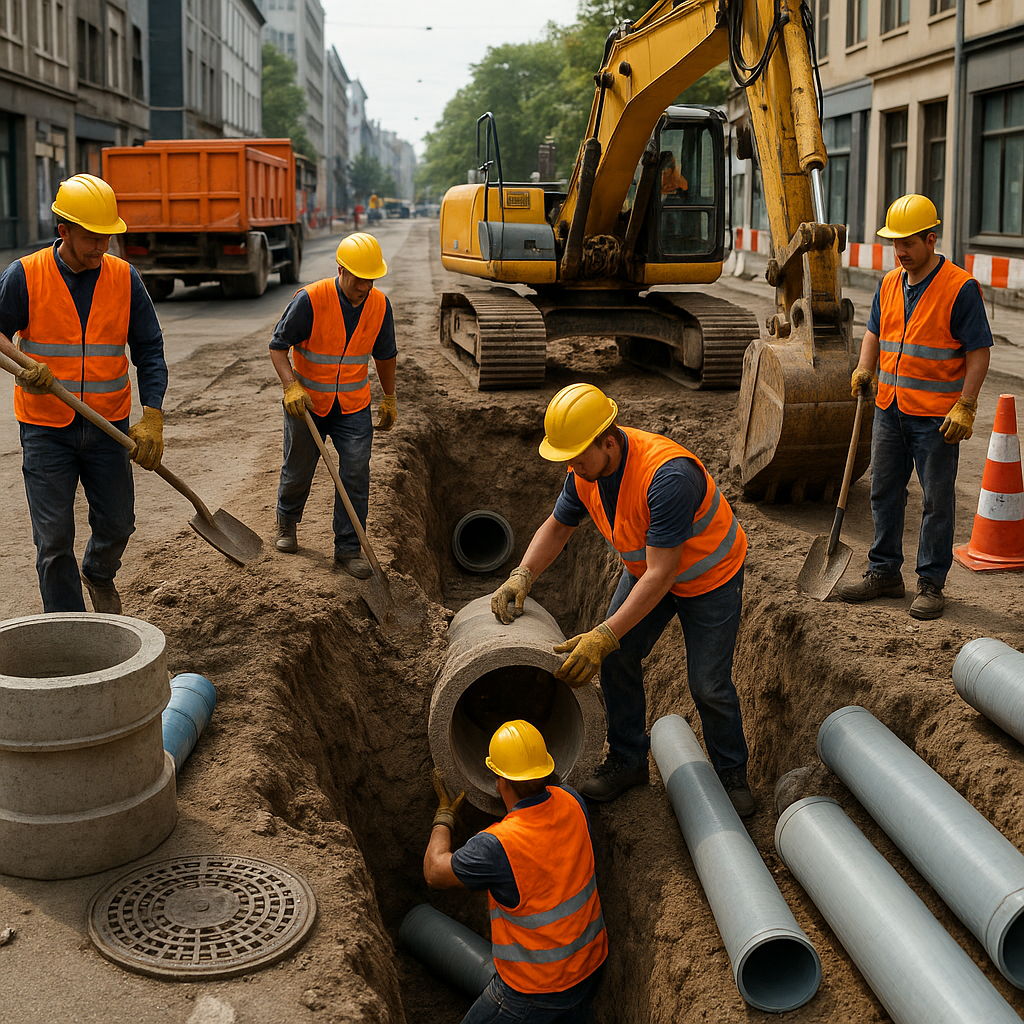pipe-materials
Choosing the Right Sewer Pipe Materials in 2024
Explore essential sewer pipe materials and types with a focus on durability, compliance, and inspection technology.
SewerInspection.org Team
10/14/2025
3 min read
0 views

Choosing the Right Sewer Pipe Materials in 2024
Introduction
Selecting the right sewer pipe materials is crucial for ensuring the longevity and efficiency of sewer systems. In 2024, industry developments highlight the importance of integrating advanced inspection technologies, evolving regulations, and sustainability trends into material selection and system design.
Understanding Sewer Pipe Materials
Traditional Materials
- Clay Pipes: Known for their durability but prone to cracking and heavy.
- Concrete Pipes: Strong and versatile, often used in larger systems.
- Cast Iron Pipes: Durable but susceptible to corrosion over time.
Modern Materials
- PVC (Polyvinyl Chloride): Lightweight, corrosion-resistant, and easy to install.
- HDPE (High-Density Polyethylene): Flexible, durable, and ideal for trenchless technology.
- Composite Materials: Offer high durability and ease of installation.
The Role of Inspection Technology
Advanced Tools
- High-Definition CCTV Cameras: Provide detailed internal views of pipes.
- Robotic Crawlers and Autonomous Robots: Navigate complex pipe systems for accurate inspections.
- AI-Powered Defect Detection: Predicts deterioration rates and recommends interventions.
Impact on Material Choice
- Pipes need to support camera and robotic access for effective diagnostics.
- Materials compatible with trenchless rehabilitation methods are preferred.
Industry Regulations and Standards
Environmental Compliance
- Real-time monitoring of leaks and illegal discharges to meet EPA standards.
- Emphasis on durable materials that prevent leaks and contamination.
Automated Reporting
- Digital logs ensure adherence to safety protocols, affecting material choices.
Market Trends and Opportunities
Growth in Robotic Inspection
- Urbanization drives demand for durable and inspection-friendly materials.
Sustainability Concerns
- Preference for eco-friendly, corrosion-resistant materials like PVC and HDPE.
Safety Protocols and Best Practices
- Use of remote inspection technologies to reduce worker exposure.
- Pipe materials that minimize structural failures are prioritized.
Recent Case Studies
- AI-assisted inspections double productivity and reduce costs.
- Municipalities report extended pipe service life with durable materials.
Cost Considerations
Lifecycle Costs
- Advanced inspection technology reduces lifecycle costs by preventing failures.
- Materials like HDPE and CIPP liners have higher upfront costs but lower maintenance expenses.
Conclusion
Selecting the right sewer pipe materials in 2024 involves balancing durability, environmental compliance, and compatibility with advanced inspection technologies. Understanding these factors ensures efficient and sustainable sewer systems.
Practical Tips
- Evaluate the environment and potential corrosion risks.
- Consider future inspection and maintenance needs.
- Stay updated with local regulations and standards.
Tags
sewer pipespipe materialsinspection technology